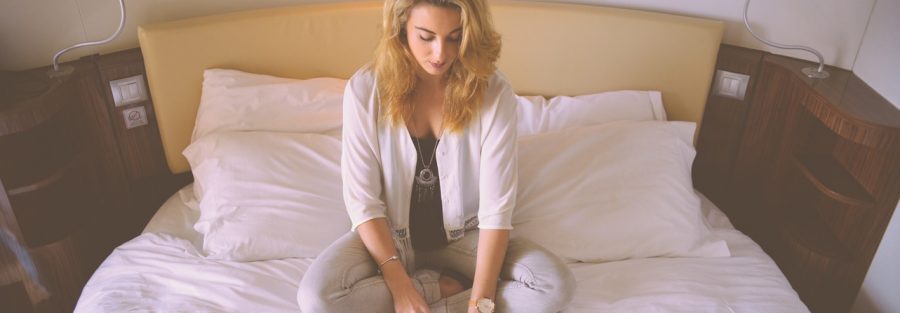
Working from home – how to save tax…and your sanity!
27 February 2017
Working from home has it’s pros (you can work in pyjamas…) and its cons (you’re still working in pyjamas when the boss Skypes you…) But with the new laws that came into effect recently regarding flexible working, setting up shop from the kitchen table could become a more common scenario for many British workers.
We look at some of the taxation implications, depending on whether the situation is a permanent or temporary remote working arrangement with your employer. (*Note that these guidelines are for those employed and working from home. Different taxation treatment applies for those who are self employed and choose to run their business from home)
Permanent home working arrangements
If you are employed specifically to work at or from home, and have no alternative but to do so, you may be able to get tax relief on some of your household expenses. The rule for general employment claims, where expenses are incurred but not reimbursed, is set out in section 336 of the Income Tax (Earnings and Pensions) Act 2003.
According to HMRC, the expenses are allowable if the employee is obliged to pay and the amount is incurred ‘wholly, exclusively and necessarily in the performance of the duties of employment.’ It is not sufficient for the expense to be just relevant to the employment, or incurred in connection with the work – it must wholly and totally relevant.
Technically, this means that duties must not be able to be performed without the use of appropriate facilities and that no such appropriate facilities are available to the employee on the employer’s premises. Claims also apply where the nature of the job requires the employee to live so far from the employer’s premises that it is unreasonable to expect travel to those premises on a daily basis.
If the employee is able to choose between working at the employer’s premises or elsewhere, or just elects to work from home occasionally, then no deductions under s336 are available.
What can be claimed:
-
Metered utility costs (although standing charges are not allowed)
-
Telephone calls (although line rental is not allowed)
-
Internet access (only in the event that this is not already in place)
-
Business rates if charged – see below (although not council tax)
-
Additional insurances – see below
-
Cleaning
-
Reasonable travel costs to the company’s main business premises.
In order to make the claim, there are several options. The employee can either complete the relevant section in the Self Assessment tax return, or the employer could reimburse all or most of the expenses under s316 ITEPA 2003. If only part of these are claimed then the employee claims under s336 for the non reimbursed amount.
Voluntary/temporary home working arrangements
If there is no obligation to work from home, then s336 cannot apply. This will be the case with most flexible working arrangements under the new guidelines. Claims for household expenses need to be under s316A instead which covers additional household expenses incurred but only if reimbursed by employer under a ‘home working arrangement’. The agreement between employer and employee need not be in writing but is preferable, and negotiation of amounts payable are actually with the employer not HMRC although HMRC has the right to challenge anything which they deem ‘unreasonable’ claims. Payments are tax and NI free.
What can be claimed:
-
Employees can claim all those costs listed above under s336 aside from travel costs from the home base to main company premises
-
Employees can also claim anything required for work although not for any workplace construction nor for fixed costs such as council tax. Supply of furniture, computers etc are however allowed and do not attract benefit in kind charge.
Keep all receipts as claims are typically made to the employer based on actual costs – or the company may have a policy to apply an estimated scale based on sample employees’ expenses, in which case there is no need to retain receipts.
Alternatively, if you have a home-working arrangement with your employer that you’ll work at home based on a regular pattern then your employer can contribute a flat rate of £4 per week (or £18 per month if you’re paid monthly) towards your working at home expenses (although your employer can make additional contributions if you can show that you had to spend more).
OTHER HOME WORKING CONSIDERATIONS
Insurance
Home insurance is highly unlikely to cover working from home as a matter of course so you’ll need to look into appropriate cover for stock you have to keep at home if applicable, company equipment, etc. You’ll also need to consider public liability insurance, in the event that any clients or suppliers may visit you at your premises.
Business Rates
Depending on the degree of use for work purposes, all or part of the house could be subject to business rates, rather than council tax. This will depend on whether the Valuation Office Agency (VOA) has attached a rateable value to a part of your home. To check if you do have to pay business rates, contact the VOA on 03000 501 501 in England and 03000 505 505 in Wales (you may qualify for small business rate relief if your property has a rateable value of £12,000 or less) Note that if you do have to pay business rates, then you will still have to pay Council Tax on the rest of your property.
Health and Safety
You’ll need to manage health and safety matters just as you would in any other workplace – so stringing computer cables across the kitchen is a no-no.
READ THE FULL ARTICLE AS IT APPEARED IN ISSUE 6 OF INSIGHT MAGAZINE: “Tax guide to working at home“